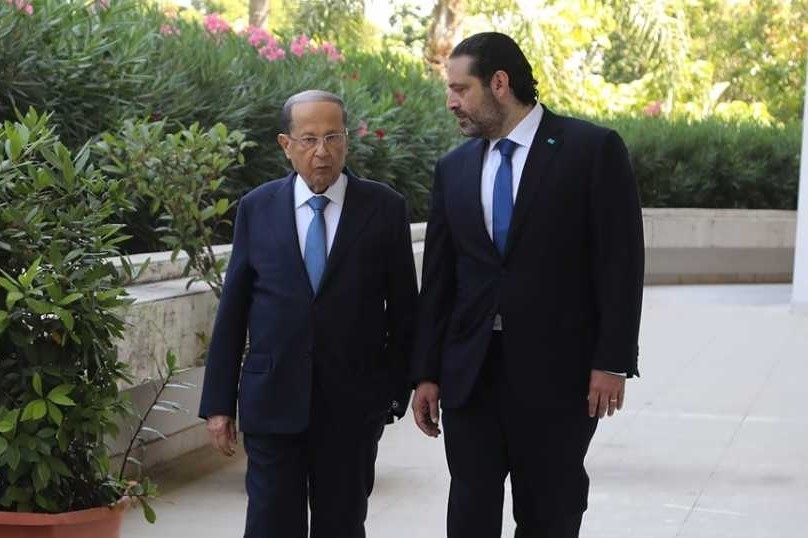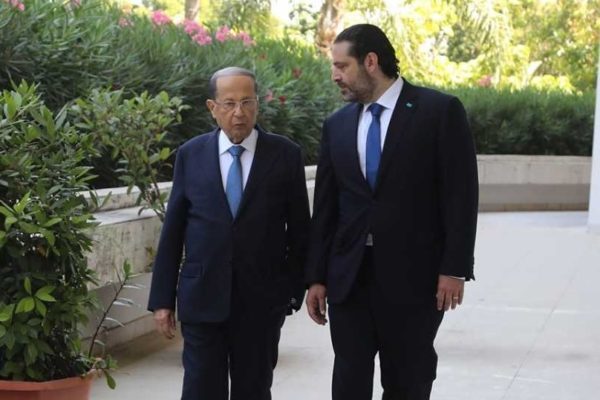
Lebanon’s President Michel Aoun is set to meet prime minister-designate Saad Hariri Monday to discuss the formation of a new government in a bid to break seven months of deadlock.
But despite widespread anger at an economic crisis that has reignited street protests against a decades-old ruling class, observers are sceptical the two will clinch a deal.
The outgoing government of premier Hassan Diab resigned in the wake of an August 4 explosion at Beirut’s port, that killed more than 200 people and ravaged swaths of the capital.
But leaders have failed to agree on a new cabinet lineup.
On Monday afternoon, Hariri will meet with Aoun for their second round of talks this month.
Hariri is expected to hand over the latest draft lineup after a previous proposal failed to secure a consensus.
“The differences are still there,” said a political source familiar with negotiations.
“The situation is not conducive for the formation of a new government,” he told AFP, on the condition of anonymity.
– ‘No hope’ –
The leaders have traded blame for the government delay, with Aoun calling on Hariri to step down if he is incapable of immediately forming a government suitable for all parties.
Hasan Nasrallah, the leader of the powerful Shiite Hezbollah movement and a close ally of Aoun, has also criticised the delay.
In a speech on Thursday, Nasrallah called on Hariri to abandon his push for a 18-member cabinet comprised entirely of technocrats.
“A government of technocrats that is not backed by political groups won’t save the country,” Nasrallah said, calling for established parties to also be represented.
In a report published ahead of Monday’s meeting, the pro-Hezbollah Al Akhbar daily accused Aoun and the party he founded of obstructing progress, by pushing for a share that would give them privileged power in government.
There is “no hope for a breakthrough” it said, referring to Monday’s talks. “Nothing has changed.”
Lebanon is in the grips of its worst economic crisis since the 1975-1990 civil war.
More than half of the population lives below the poverty line, while the Lebanese pound has lost more than 85 percent of its value against the dollar in the black market.
The Lebanese pound, pegged at 1,507 to the greenback since 1997, sold for 15,000 to the dollar on the black market last week at an all-time low.
The rapid currency plunge reignited street protests which started in 2019, but were temporarily snuffed last year by the coronavirus pandemic.
– ‘Going in circles’ –
Demonstrators criticised officials for wrangling over cabinet posts, instead of coming together to form a government capable of spearheading reforms long demanded by donors and the international community.
“There are no signs indicating we are heading towards a solution,” Lebanon’s French-language daily L’Orient-Le Jour reported Monday.
“Talks are going in circles”.
The international community has also denounced the performance of Lebanese officials.
“Lebanese authorities should act urgently to halt the deepening crisis and ensure good governance,” UN humanitarian coordinator Najat Rochdi told the Security Council last week.
French president Emmanuel Macron, who is leading the international charge against Lebanon’s under-fire politicians, said last week that he would push for a new approach to “prevent the collapse of the country”.
The European Union and the United States should also ramp up pressure on Lebanese politicians, said a French diplomatic source, who did not rule out the possibility of sanctions.
(AFP/ FRANCE24)



Leave a Reply
You must be logged in to post a comment.